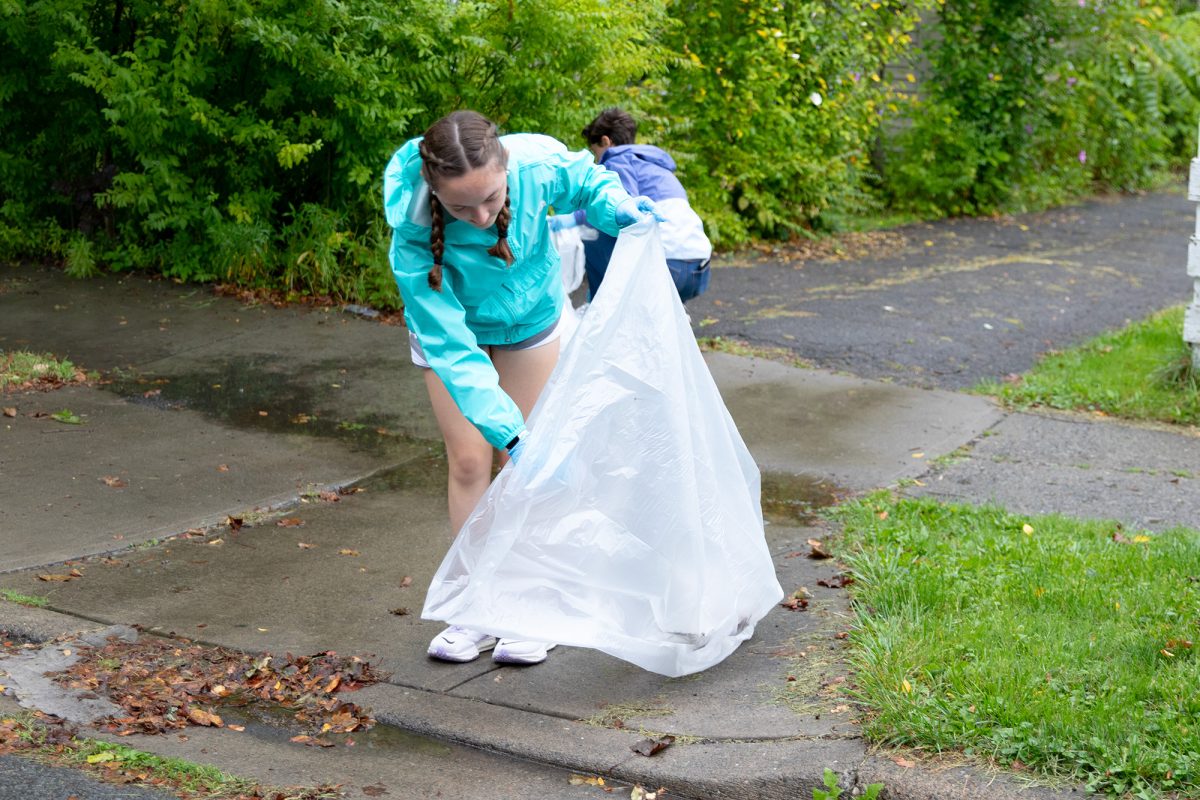Nearly 300 protesters lay still in the streets of Boston. Clothed in white, they represented the hundreds of thousands that have been killed in the Darfur genocide, so far.
In spring 2007, Rachel Merkin attended the worldwide political rally, Global Days for Darfur. After the rally, Merkin made sure she would never forget the atrocities happening in Darfur, a region in Sudan.
“The visual representation was so powerful to me,” Merkin said. “That was one of the first times the numbers of deaths in the genocide really affected me.”
As co-president of STAND: National Students Anti-genocide Coalition, Merkin and other students in groups like IC Safewater and Water for Sudan want to make the campus aware of issues in Africa.
STANDING OUT
Merkin said public awareness about the conflicts in Africa begins with individuals.
“Raise awareness in yourself,” Merkin said. “Raise awareness in your peers. … Being an educated person of the world means knowing what’s going on in the rest of the world.”
In the spring, STAND is organizing a trip to Washington, D.C., to meet with congressional representatives and express its grievances about Sudan. Senior Libby Gordon, co-president of STAND, said the trip would show other students how important it is to spread the word of the genocide.
“[Students need to] contact the media and representatives,” Gordon said. “The more you let your representatives know you’re concerned, the more they will be inclined to do something.”
ONE WELL AT A TIME
As a child, junior Feleg Tsegaye attended a speech by the South African activist Desmond Tutu who spoke of everyone being interdependent. Tsegaye said he has never forgotten Tutu’s speech.
“We all need each other for something,” Tsegaye said. “Helping someone else is a worthwhile cause.”
Tsegaye, a member of IC Safewater, spent the past two summers filming a documentary and visiting his family in Ethiopia. His film “Glass Half Empty” focuses on how climate change has affected the African economy. In his research, Tsegaye found that in the last few years, Africa has lost as much water as it has used.
“A lot of economies [in Africa] revolve around farming,” he said. “And if the climate isn’t there, people are going to starve.”
Shawna Brown, vice president of IC Safewater, said other nations do not have easy access to water as the United States does.
“It’s unbelievable to me that people have to go and walk 10 miles to find access to water that can still be unsafe,” Brown said. “It’s our responsibility as humans to help end that.”
IC Safewater hopes to raise $10,000 by the end of next May to make a donation to Wateraid, an international charity. The money would help build wells in a village in Ethiopia, a country chosen because only 22 percent of the people have access to clean water. Currently, the group has approximately $7,000.
IC Safewater formed last year when seniors Liz Getman, senior writer for The Ithacan, and Aaron King, opinion editor, decided to organize a club that would deal with water issues and help people in developing countries. Teaming up with Wateraid gave the group an outlet to its national cause.
On Oct. 11, IC Safewater will sponsor a can drive to collect money for Ethiopia. There will also be a five-kilometer run in the spring.
COMBINED EFFORTS
Samantha Wolfe, co-chair of the college’s chapter of Water for Sudan, organized the group’s first benefit concert Saturday, which raised $520 for new wells in Sudan. She said the event made African issues public in the Ithaca community.
“It’s about making issues known that aren’t popular to talk about,” she said. “It’s our responsibility as humans to do what we can do.”
Water for Sudan is a national nonprofit organization based out of Rochester, N.Y. It was founded by Salva Dut, one of the Walking Boys of Sudan, a group of 17,000 who fled from war in southern Sudan. Dut started Water for Sudan after his father fell ill from water diseases.
“I came back here [to the United States] and decided I needed to do something to help my dad and other people like him,” Dut said.
Since 2004, Water for Sudan has built 29 wells in Sudan. The money that the college’s chapter of Water for Sudan raises will be sent directly to the charity.
Dut said the money being sent to Sudan to provide wells for the Sudanese makes a difference.
“I was there three weeks ago,” Dut said. “It’s not that easy living there.”
Students’ efforts to raise awareness for Africa have not gone unnoticed in the campus community. Russel Martin, assistant director of the Center for Student Leadership and Involvement, has met several times with the student organizations and said their activities have been extremely remarkable.
“It’s incredible that students are so global-conscious,” Martin said. “They’re here not only getting a good education … but working to improve others’ [lives].”
Senior and Student Government Association President Cornell Woodson said the groups do a tremendous job of informing students.
“[They are] bringing awareness to Ithaca College students, who will be the next leaders of our country,” he said. “It’s amazing.”
Students who would like to join STAND can attend meetings at 9 p.m. Tuesdays in Friends 207. To join IC Safewater, e-mail [email protected].







